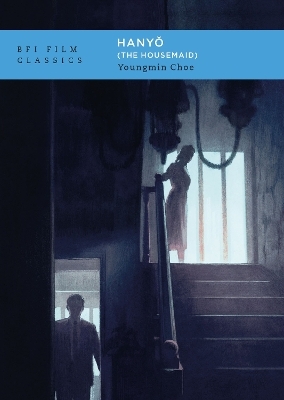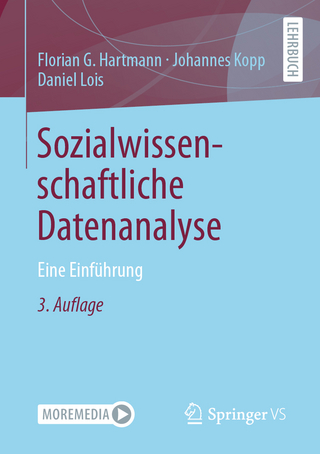
Hanyo (The Housemaid)
Seiten
2025
British Film Institute/BBC (Verlag)
978-1-83902-586-0 (ISBN)
British Film Institute/BBC (Verlag)
978-1-83902-586-0 (ISBN)
- Noch nicht erschienen (ca. September 2025)
- Versandkostenfrei innerhalb Deutschlands
- Auch auf Rechnung
- Verfügbarkeit in der Filiale vor Ort prüfen
- Artikel merken
The upwardly mobile Kim family employs a young woman to help manage their new house. Mr. Kim begins an affair with the nameless ‘housemaid’, who soon drags the entire family into a terrible tragedy… The director Kim Ko-young played a formative part in South Korean cinema’s “Golden Age” of the 1960s and 1970s; his 1960 masterpiece, Hanyo (The Housemaid), rescued and restored after almost being lost, is today widely regarded as one of the greatest South Korean films of all time. Directors such as Park Chan-wook, Im Sang-soo, Kim Ki-duk, Ryu Seung-wan and Kim Jee-woon have all praised the film, and Bong Joon-ho has referred to Hanyo as “the Citizen Kane of Korean cinema,” citing it as an inspiration for his film, Parasite (2019).
In this book, Youngmin Choe argues that Hanyo encapsulates the mood of social change in postwar South Korea during the period of tremendous upheaval and rapid transformation that followed the devastating war, which divided families across the newly formed Cold War boundaries. The housemaid – a figure that Kim Ki-young would explore repeatedly throughout his career – was a young woman driven by greed and envy, a femme-fatale set loose on the middle-class home. A monstrous embodiment of the destructive desires of capitalism, which recklessly eroded the foundations of tradition, this housemaid served as the conscience of a period that otherwise leaned heavily into economic transformation, pointing to the anxiety that undergirded what might be otherwise regarded as a time of ‘progress’. Going beyond the traditionalist approaches that resist feminist readings of Hanyo, Youngmin Choe insists that the enduring legacy of Hanyo is both due to its uncanny aesthetics and - though it certainly was not intended to be an explicitly feminist film - in the questions it raises about class mobility, gender oppression and women’s work.
In this book, Youngmin Choe argues that Hanyo encapsulates the mood of social change in postwar South Korea during the period of tremendous upheaval and rapid transformation that followed the devastating war, which divided families across the newly formed Cold War boundaries. The housemaid – a figure that Kim Ki-young would explore repeatedly throughout his career – was a young woman driven by greed and envy, a femme-fatale set loose on the middle-class home. A monstrous embodiment of the destructive desires of capitalism, which recklessly eroded the foundations of tradition, this housemaid served as the conscience of a period that otherwise leaned heavily into economic transformation, pointing to the anxiety that undergirded what might be otherwise regarded as a time of ‘progress’. Going beyond the traditionalist approaches that resist feminist readings of Hanyo, Youngmin Choe insists that the enduring legacy of Hanyo is both due to its uncanny aesthetics and - though it certainly was not intended to be an explicitly feminist film - in the questions it raises about class mobility, gender oppression and women’s work.
Youngmin Choe is Associate Professor of Korean Cinema and Visual Culture at the University of Southern California, USA. Her previous publications include Tourist Distractions: Travelling and Feeling in Transnational Hallyu Cinema (2016) and the co-edited volume The Korean Popular Culture Reader (2014).
Acknowledgments
Introduction: Hanyo and Compressed Modernization
1 Tension and Censorship
2 Density and Architecture
3 Frisson
Coda: Hanyo’s Afterlife
Notes
Bibliography
Index
Credits
| Erscheint lt. Verlag | 4.9.2025 |
|---|---|
| Reihe/Serie | BFI Film Classics |
| Zusatzinfo | 60 bw illus |
| Verlagsort | London |
| Sprache | englisch |
| Maße | 135 x 190 mm |
| Themenwelt | Kunst / Musik / Theater ► Film / TV |
| Sozialwissenschaften ► Kommunikation / Medien ► Medienwissenschaft | |
| ISBN-10 | 1-83902-586-7 / 1839025867 |
| ISBN-13 | 978-1-83902-586-0 / 9781839025860 |
| Zustand | Neuware |
| Informationen gemäß Produktsicherheitsverordnung (GPSR) | |
| Haben Sie eine Frage zum Produkt? |
Mehr entdecken
aus dem Bereich
aus dem Bereich
Eine Einführung
Buch | Softcover (2022)
Springer VS (Verlag)
32,99 €
wie KI und virtuelle Welten von uns Besitz ergreifen – und die …
Buch | Hardcover (2023)
Heyne (Verlag)
22,00 €


